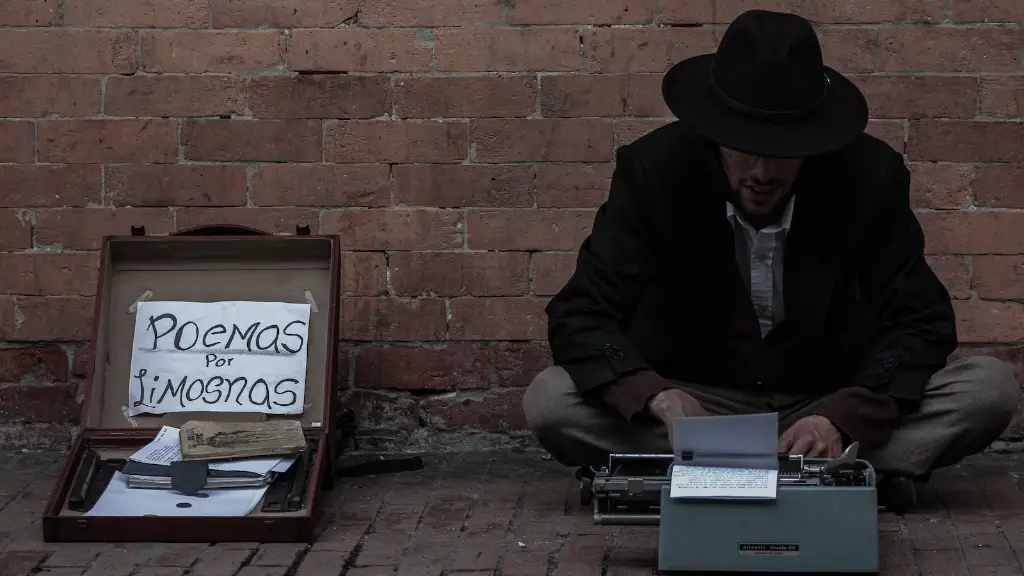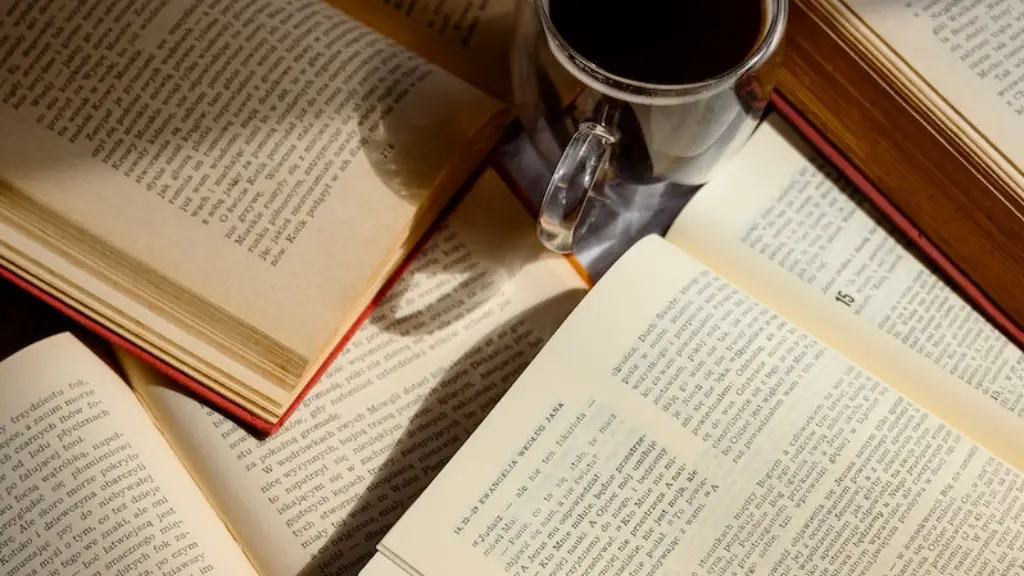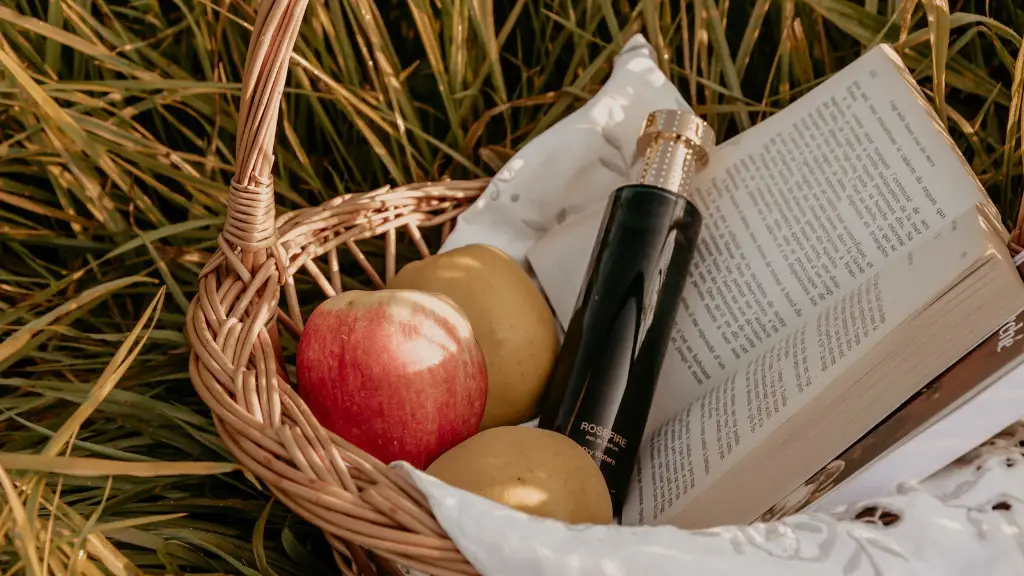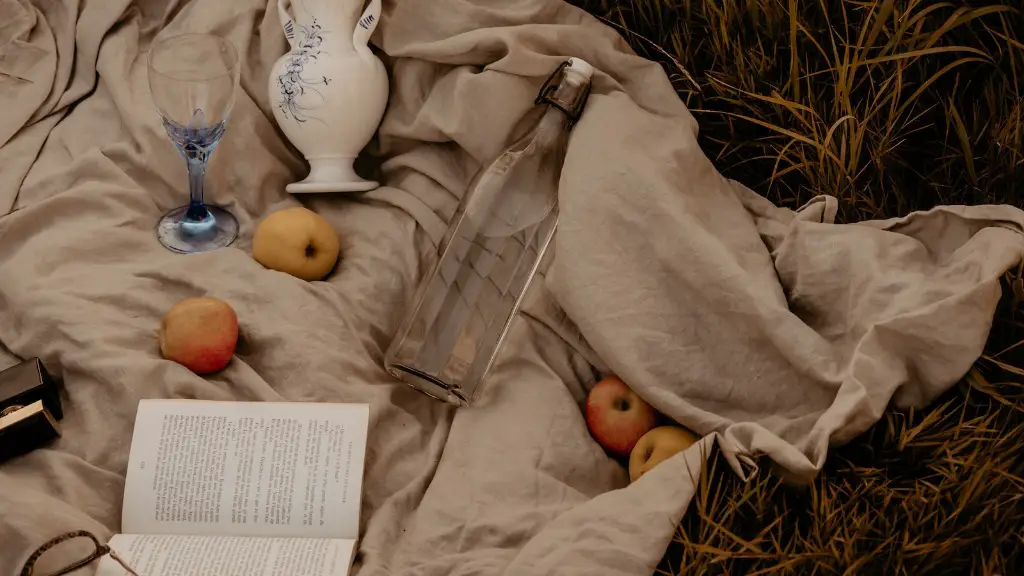Whenever we take up writing, most of us know that there is a difference between prose and poetry but what is it really? Poetry and prose are two ways of writing that are employed differently in modern literature. In this article, we will explore the difference between them and what sets them apart from each other.
Poetry is one of the oldest forms of literature and it is known for its lyrical, powerful, and moving compositions. It often uses language that is not literal and communicates feelings and emotions through images, symbols, and metaphors. Poetry is more concentrated than prose and its characteristically condensed structure gives it a structure that distinguishes it from other forms of written language. It is usually composed of short lines, slanting or broken into couplets, and often uses rhyme and meter.
On the other hand, prose is much more straightforward and literal. Most written works, autobiographies, novels, and articles are composed of prose. The language and structure used in prose are more organized, without any specific line breaks, and often relies on logical arguments. Prose can also be expressive, evocative, and creative, but its main purpose is to communicate factual information in a way that is easy to understand.
In addition to its structure and language, poetry also differs from prose in the way it is interpreted. The main goal of poetic writing is to create an emotional response in the reader, while the main goal of prose is to relay information. Poems do not necessarily have to be interpreted in the same way, as they can be interpreted differently by different readers. In contrast, prose is usually interpreted in a similar way as its main goal is to impart facts, usually in an objective manner.
Because of its more expressive and powerful language, poetry has a greater impact on the reader than prose. Poetry is like music; you may relate to it more than prose, due to the emotions it conveys. Poets often use vivid language to portray ideas and emotions, allowing readers to experience them in a much more intense way. Prose, on the other hand, is used to provide facts and information in a straightforward manner, without much emotion.
The differences between poetry and prose can also be seen in their organization. In prose, the information is organized in a linear fashion, with the main points being made first and then supporting details or examples being discussed. Poetry, however, is often organized in a non-linear manner, with images, symbols, and metaphors being used to convey ideas and emotions. In addition, poetry often uses rhythm and repetition to highlight certain points, while this is usually not done in prose.
Ultimately, the difference between poetry and prose lies in its structure and language, as well as its purpose. Poetry is more lyrical, with language that is not literal, and uses images, symbols, and metaphors to communicate feelings and emotions. Prose is more straightforward, with organized language, and is used to provide facts and information. Each has its own strengths, and both can be used in literature to create powerful and effective works.
Poetic Techniques
Poetry is unique in its use of techniques such as personification, alliteration, imagery, metre, rhythm and rhyme, to name a few. While these techniques can be used in prose, it is less common and has a different effect. For example, when used in a poem, personification adds a level of drama and emotion as an inanimate object is given human qualities. Alliteration gives the poem a subtle lyrical rhythm that adds another layer of meaning. Imagery, a technique widely used in poetry, is used to evoke the five senses in the reader, making it more emotional and vivid. All these techniques add depth and emotion to the poem, conveying its message in a more powerful and compelling way.
Rhythm and meter is another important technique used in poetry to create a cohesive aesthetic. This is usually achieved by repeating words in a certain pattern or by playing with syllables. Although prose can be structured to create a certain aesthetic, it is much more difficult and less common than in poetry. Finally, rhyme is often essential in a poem, as it helps create rhythm, imagery, and emotion. Many poems will repeat words at the end of a line, creating end rhyme, or within a line, creating internal rhyme. Rhyme helps create strong lines, reinforces imagery and can have a powerful emotional impact.
Oral Tradition
Poetry can also be distinguished from prose by its tradition. Historically, poetry has been used for centuries as an oral tradition, where stories, songs and other compositions were passed down from one generation to the next. Poets have used their works as forms of expression and communication, and performance is an integral part of their practice. On the other hand, prose is usually written, which gives it a different feel and purpose. Although it can be entertaining and emotionally impactful, it is not suitable for oral storytelling as the language used is not designed to be spoken.
In the modern day, poetry has retained its oral tradition, with poets often performing on stage, reciting their works to an audience. They also frequently collaborate, share their works and build communities through readings and open mic nights. This is an integral part of the poetry community and helps to sustain its presence and vitality.
In contrast, prose is much less dependent on the performance element. While it can be read aloud by the author, or someone else, the main goal of most written works is to convey information in a straightforward way, and the performance aspect is less integral. As such, prose does not benefit from the same type of community and support that is seen in the poetry world, as most writers focus on the written form of the work.
Connecting To The Reader
Poetry, in its use of imagery, rhythm and repetition, allows readers to connect to the poem on an emotional level, experiencing the writer’s feelings and ideas in a more powerful and intense way. Prose, on the other hand, communicates mainly through facts, which allows readers to gain knowledge but not necessarily connect to the text emotionally, unless it is done in a creative and powerful way. Even though many authors attempt to use prose to evoke emotion and create deeper connections to the readers, it does not always have the same impact as a poem. Even with the use of creative language, poetic devices and creative narration, prose cannot match the power and beauty of a well-written poem.
Overall, the difference between poetry and prose lies mainly in its language and structure, as well as its purpose. Although both can be used to express ideas and emotions, poetry has an advantage over prose in this regard due to its more expressive language and powerful aesthetic. In addition, poetry has a long tradition of being shared and performed that makes it a popular and enduring form of literature.
The Impact of Poetry
Poetry has a powerful impact on the reader, which is why it has sustained its popularity throughout the centuries. Through its vivid language and imagery, poetry allows readers to experience its message in a more intense and emotional way. Furthermore, its oral tradition has also made it an important part of cultural heritage and gives it a unique flavor. Lastly, its condensed structure has made it an invaluable part of literature, allowing authors to explore deeper and darker concepts than would otherwise be too long or laborious for the reader.
Poetry has been used throughout history to convey a message, entertain, and make sense of the world. Its impact on the reader cannot be understated, as it can be used to evoke powerful emotions and create a deep connection to the reader. This is why it is still popular today and will remain a valuable part of literature in the future.
The Role of Poetry in Modern Times
As previously mentioned, poetry has been used throughout history to record stories, entertain and communicate ideas. In modern times, it continues to play an important role in literature and culture, creating connections and bringing people together through its lyrical language and powerful message. It allows poets to articulate their innermost thoughts and express themselves in a way that is not always possible with prose.
In addition, poetry can be used to explore complex issues in a succinct and powerful way. It often makes use of rich imagery and vivid language to convey powerful messages and give voice to the oppressed and marginalised. This is why it has been used throughout history to resist oppression and fight injustice. It is still used today to advocate for social and political causes.
Finally, poetry can also be used to explore philosophical and existential themes, providing a unique perspective that is not always available in other formats. Many poets use their works to explore difficult questions about life, death, reality and our place in the world. This allows them to pursue a deeper understanding of these topics and can also lead to more meaningful conversations with their readers.
Conclusion
As you can see, poetry and prose are two different forms of expression that have distinct characteristics. Poetry is more lyrical, with language that is not literal, and uses images, symbols, and metaphors to communicate feelings and emotions. It is often used by poets to create powerful and emotional works that can have a profound impact on the reader. In addition, poetry also has a strong oral tradition and is often used to explore complex topics in a unique and powerful way.
Prose, on the other hand, is more straightforward, with organized language, and is used to provide facts and information in an easy to understand manner. However, it cannot match the power and beauty of a well-written poem and does not benefit from the same type of community that exists in the poetry world. Both forms of writing have their distinct features and merits, and can be used to create powerful works of literature that have a profound impact on readers.





